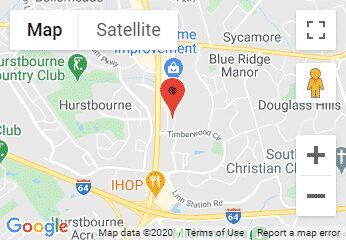It is allowable for the U.S. Department of Education to garnish 15% of your wages if you are in default on a student loan. It is also allowable for them to charge a 25% penalty if you are in default. If you have no wages, they may attach tax refunds and social security benefits above $750 per month. Unfortunately, they can do this even if it denies a person their food and medical care. See James Lockhart v. the United States.
Additionally, there is no court order requirement for a student loan wage garnishment. Instead, the rule is simple. If you are in default, the government will garnish your wages and attach your social security. Unfortunately, they only have to send a notice to the last address they have on file for you and then, send the notice to your bank or work. If you don’t get the notice, you get an unpleasant surprise.
Terms and Conditions for Garnishment
30 days prior to garnishment for a student loan, the creditor must send a notification in writing to the last known address they have on file for you. That notification will inform you of the following:
- The total that you owe.
- Instructions to get a copy of records relating to your student loan.
- How to enter into a voluntary repayment schedule.
- How to request a hearing on the proposed garnishment.
There is No Defense for Being Under Age
Unfortunately, with a student loan wage garnishment, there is no defense for being underage. In fact, Section. 484A(b) of the Higher Education Act of 1965, 20 U.S.C. § 1091a(b), bars this claim for federally-insured loans and most state laws allow underage debts for necessity.
Additionally, the statute of limitations does not apply to student loan wage garnishments due to 20 U.S.C. § 1091a(a) and Section 484A(a) of the Higher Education Action that bars federal student loans from a statute of limitation.
Furthermore, most of the other normal defenses to lawsuits are cut off to student loan wage garnishments. One exception is if the court dismisses your loan. Another is if you are laid off but returned to work within the past year and then, file the student loan disability discharge or bankruptcy.
File Chapter 13 and Chapter 7 to Avoid Student Loan Wage Garnishments
With that, it is not unusual for people to file back-to-back Chapter 13 and Chapter 7 bankruptcy petitions to avoid student loan wage garnishments and attachments.
Again, the government does not have to file a lawsuit to collect for federal student loan debt. Rather, they only have to send notice to the last known address they have on file for you and send their garnishment to your work or bank.
This is really shocking for most people, but the good news is, you can stop the garnishment and might even get a refund by filing bankruptcy.
Collections, Programs & Student Loan Wage Garnishments
If a student loan is not dischargeable in bankruptcy, then you must manage it. Managing governmental loans is easy due to the numerous programs to avoid default.
DOE has many programs that allow you to avoid collections and keep a loan out of default. Department of Education (DOE) loans do not generally go into default until they are 270 days overdue. Private loans and Perkins loans technically may be in default the day after the due date.
Again, once the loan is in default, the government has strong collection powers. In fact, it can seize tax refunds, garnish wages, garnish government benefits such as social security, attach real estate and property through the Department of Justice lawsuits, and seize bank funds.
The Statute of Limitations does not apply to government student loans 20 U.S.C. § 1091a(a). But a government student loan cannot garnish more than 10% of wages under 59 Fed. Reg. § 22473. Disability, closed school, and other “administrative” discharges are available for federal student loans.
Resources for Student Loans
Other Related Information
How to Stop Student Loan Wage Garnishment
Current Student Loan Interest Rates
How to Stop Student Loan Collections and Garnishments with Bankruptcy
Do you need help managing your student loan? Contact my office right away to start the conversation. Nick C. Thompson, Attorney: 502-625-0905







